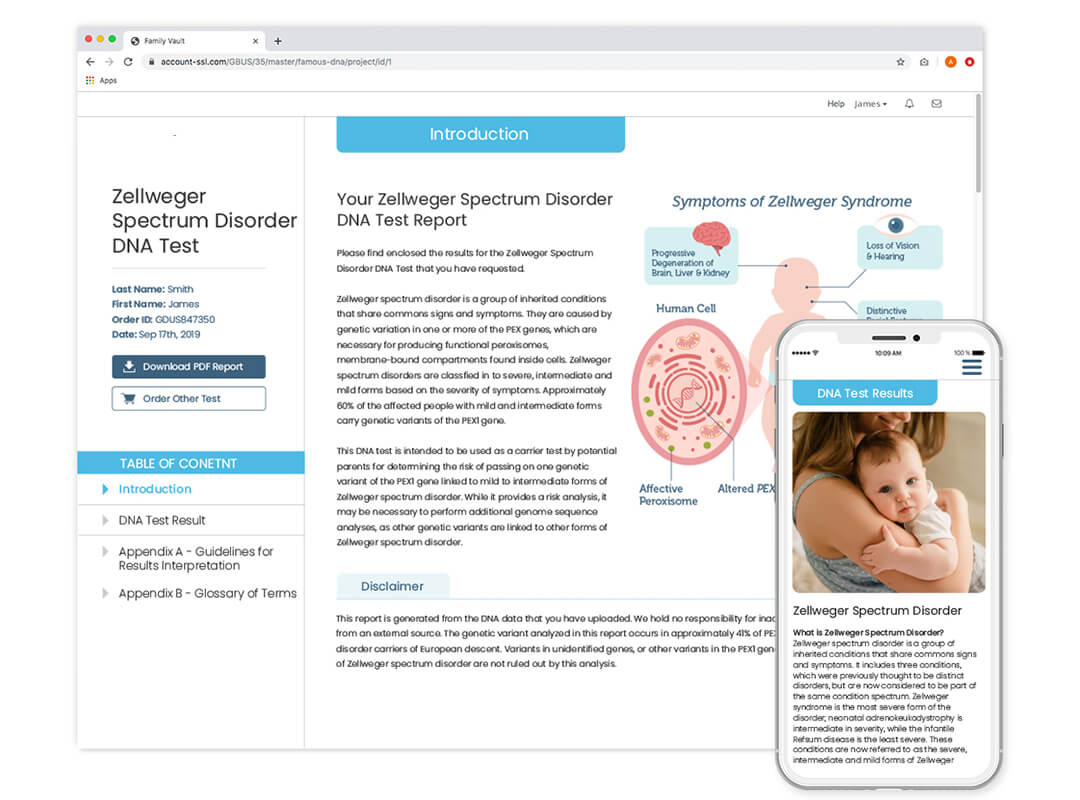Zellweger Spectrum Disorder DNA Test
Are you a genetic carrier for Zellweger spectrum disorder? Find out with this DNA Test.
- Detects one PEX1 gene variant which causes the mild and intermediate forms of Zellweger spectrum disorder
- Carrier screening test intended for couples who are planning to become pregnant
- 100% private and confidential online results
Already have DNA markers? Sign in and upload your data to view results.
Need to take the DNA Test? Order our easy-to-use swab kit.





